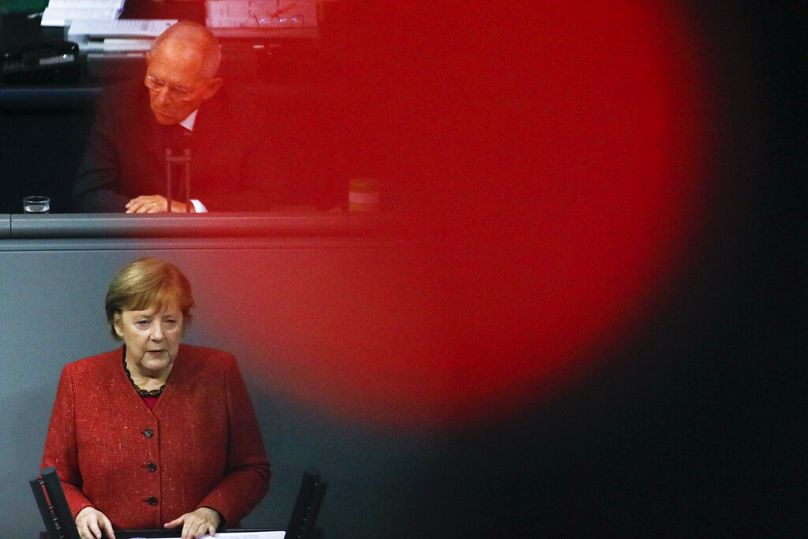Angela Merkel is the second longest-serving German chancellor.
Angela Merkel's days as German chancellor will come to an end next year — a date has now been set for the country's next general election.
Merkel has served a record four terms in government, having been sworn in for the first time in 2005. If she was to stay in office until December 2021, she would overtake Helmut Kohl as the longest-serving German chancellor.
The date of the next election is set for 26 September 2021, and Merkel is adamant that she won't be seeking a fifth term.
This will be the country's twentieth post-World War II parliamentary election. Ahead of the vote, Angela Merkel's party plans on selecting a new leader in January.
The person who will succeed Merkel will depend on who the leading parties nominate as their candidates for the role.
Merkel's centre-right Christian Democratic Union, part of a conservative bloc, is well ahead in polls. It's thought that this is partly down to positive reviews of her management of the coronavirus pandemic.
The centre-left Social Democrats, who provided three of Germany's eight post-war chancellors, has chosen Finance Minister Olaf Scholz as its candidate.
But the party, now the junior partner in Merkel's governing coalition, is currently giving a weak performance in the polls. Its support is lower than that of the environmentalist Greens, who are likely to make their first run for the chancellery but have yet to nominate a contender.
Germany holds elections every four years. The lower house of parliament, or Bundestag, elects the chancellor. That may not happen until well after the election, because the process of putting together a governing coalition can be lengthy. After the 2017 election, it was nearly six months before Merkel was sworn in for her fourth term.
Voters will elect at least 598 lawmakers to the Bundestag. The number may be considerably higher because of Germany's complex electoral system, which is based on proportional representation but also sees voters choose directly elected local representatives. This is why the current Bundestag has 709 members.












